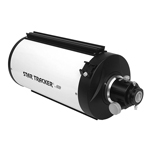 GSO RC 8" OTA
GSO RC 8" OTA
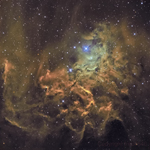 By LAMAGAT Frederic
By LAMAGAT Frederic
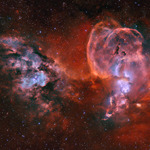 Statue of Liberty Nebula
Statue of Liberty Nebula
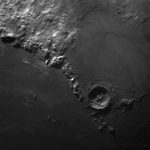 GSO RC 8inch | Moon Crater
GSO RC 8inch | Moon Crater
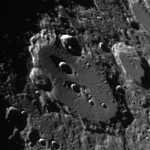 GSO RC 8inch | Moon Crater
GSO RC 8inch | Moon Crater
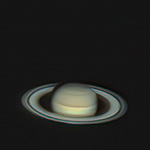 GSO RC 8inch | Saturn Rings
GSO RC 8inch | Saturn Rings
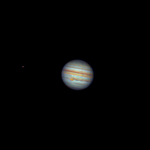 By Avinash from Odisha
By Avinash from Odisha
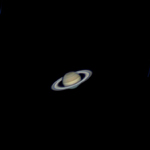 By Avinash from Odisha
By Avinash from Odisha
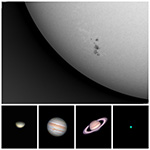 By Avinash from Odisha
By Avinash from Odisha
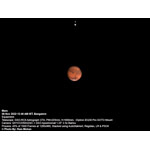 By Ram Mohan from Bangalore
By Ram Mohan from Bangalore
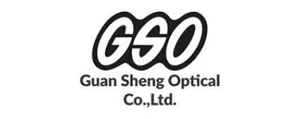
8" F/8 RC Astrograph Telescope is not only perfect for Astrophotography but also for observing.
The RC has a concave hyperbolical primary mirror and a convex hyperbolical secondary mirror. The resulting image correction throughout the field as well as the sharpness on the optical axis are superior to typical Schmidt-Cassegrains or Newtonians. Both mirrors are ground and polished under pricision computer control to diffraction-limited or better surface accuracy.
Advantages of RC Telescopes compared to MAC and SCT
Aperture 8" / 203mm.......Focal Length 1600mm
f/8 is faster than a 8" SC or Mak
illuminated field is much bigger
you can attach 2" eyepieces and full size SLR/DSLR cameras without vignetting
two hyperboloidical mirrors with 96% reflectivity lead to a bright image
faster cool-down time and no dew problems because of open tube design without front correcting plate
enough back focus for all kinds of accessories like correctors and reducers
2" MONORAIL Focuser with better stability
Less dew problems against Schmidt Cassegrain or similar
fixed mirrors and 2" Crayford focuser with 1:10 dual speed transmission - no problems with mirror shift
A rotatable, machined dual-speed (10:1) Crayford focuser equipped with a sturdy linear-bearing provides precise focus adjustment without slippage or flexure with heavy astrophotography accessories attached
Features one dovetail finder scope bases.
8" RC f/8 Astrograph is designed for full illumination of the "35mm format" (24 x 36mm).
The GSO 8" RC astrograph (a telescope designed specifically for photographing comparatively wide areas of the sky) makes the coma-free imaging of true Ritchey-Chrétien imaging optics available to the DSLR and CCD astrophotographer at a price less than that of most CCD cameras. It is not designed for digiscoping through an eyepiece. Featuring premium low thermal expansion quartz mirrors rather than ordinary optical glass, this very economical 8” R-C makes you wonder just what those outrageously expensive R-Cs have that makes them cost so much.
Designed for exceptional imaging, the 8 inch RC provides the wide coma-free photographic field that DSLR and CCD astrophotographers crave, but can’t get from conventional reflectors and Schmidt-Cassegrains. Likewise, as a pure two-mirror system, the 8 RC is totally free from the spurious color that affects the imaging of all but the most costly apochromatic refractors, and it does it with an 8” aperture that dwarfs the light gathering of most apo refractors.
If serious astrophotography is your goal, but the price of most true Ritchey-Chrétien optics has been keeping you from the optical design most modern professional observatories and the Hubble Space Telescope use for their imaging, your wait is over. The 8 inch RC astrograph can bring the world of professional DSLR/CCD deep space imaging to your backyard observatory at a remarkably affordable price.
Optical design
True Ritchey-Chrétien Cassegrain-type two-mirror optics, with hyperbolic primary and secondary mirrors.
Optical specifications
8” aperture, 1625mm focal length, f/8 focal ratio.
Hyperboloid primary mirror
Made of low thermal expansion quartz, rather than the ordinary optical glass used by competitors. Ground and polished under precision computer control to diffraction-limited or better surface accuracy. Unlike catadioptric designs (SCTs, Maksutovs, etc.) that move the primary mirror fore and aft in the optical tube to focus (which can lead to image shift as the mirror position changes) the 8RC primary mirror is fixed to eliminate both a catadioptric’s image shift and the primary mirror collimation requirements of a Newtonian reflector.
Hyperboloid secondary mirror
Made of low thermal expansion quartz, rather than ordinary optical glass. Ground and polished under precision computer control to diffraction-limited or better surface accuracy. Mounted in a four-vane spider and fully collimatable using simple standard Cassegrain reflector collimating techniques. Unlike complicated R-C designs that use motors to move the secondary mirror fore and aft to focus, the 8RC secondary mirror is fixed and focusing is done externally.
96% reflectivity enhanced aluminum coated optics
Both primary and secondary mirrors are coated with 96% reflectivity enhanced aluminum, overcoated with a layer of quartz for long life.
Steel optical tube
While not quite as resistant to temperature-related focus changes as its more expensive carbon fiber brother, the 9” o.d. x 18” long steel tube of the AT8RCS will require few, if any, focus adjustments during most imaging sessions.
Multiple internal light baffles
Computer optimized primary and secondary baffling. Ten contrast-enhancing glare-stop baffles in the optical tube; multiple glare-stop microbaffles in the secondary mirror light shield; and five baffles in the primary mirror baffle tube provide truly dark sky backgrounds during imaging.
Dual-speed linear Crayford focuser
A new design 2” Crayford focuser is threaded onto the 90mm x 1mm pitch rear cell of the 8RC. The matte black interior of the new longer 50mm travel drawtube has anti-reflection threading for high contrast. The focuser can be rotated to any convenient angle for the sake of photographic composition by simply loosening the collar that secures the focuser to the scope body, rotating the focuser to the desired angle, and tightening the collar to lock the focuser in the new orientation.
The new bearing-less linear focuser has a polished stainless steel drive rail that runs the length of the drawtube, rather than having the stainless steel drive shaft simply press directly on (and wear) the aluminum drawtube as with conventional Crayford focusers.
The drive rail rides in a self-lubricating track that extends most of the length of the focuser body. The drive rail and its attached drawtube are thereby supported over most of their length at all times, rather than by a conventional Crayford focuser’s two sets of small contact area roller bearings. This system distributes the drive force evenly over the entire drawtube, without concentrating it on a few small contact points. The result is less potential drawtube flexure and no wear (much less uneven wear) on the drawtube.
The precision-made non-vignetting focuser has dual-speed focusing. There are two coarse focusing knobs. The right knob also has a smaller concentric knob with a 10:1 reduction gear microfine focusing ratio. This provides exceptionally precise image control during critical imaging. All focus knobs are ribbed, so they are easy to operate, even while wearing gloves or mittens in cold weather. Multiple internal baffles in the focuser drawtube assure high contrast.
Despite the new more rigid focuser design, the weight of very heavy equipment trains (camera, plus filter wheel, plus temperature-compensated electric focuser, etc.) may cause the 50mm long focuser drawtube to tilt slightly when fully extended, affecting the focus. Three threaded extension rings (two 1” in length and one 2”) are provided to install singly or in combination between the 8RC rear cell and the focuser. These provide a flex-free solid metal extension that changes the distance between the focuser and the rear cell. This lets you accommodate the varying back-focus requirements of DSLR-type camera imaging versus long equipment train CCD imaging, while minimizing the need to extend the focuser drawtube. Additional optional 1” and 2” long threaded extension rings are available to fine-tune the back focus as needed, as well as optional Astro-Tech 2” compression ring extension tubes that fit into the focuser drawtube.
The image plane is located 10” behind the rear cell. With the standard dual-speed Crayford focuser installed on the scope, there is 159.71mm of back focus available from the top surface of the 2” accessory holder to the image plane.
For even more impressive coma-free imaging with the 8RC, consider adding the field flattener. While not specifically designed to work with Ritchey-Chrétien astrographs, images taken with the field flattener by R-C owners have shown that the 2" field flattener works remarkably well with these advanced coma-free reflectors as well as with refractors. This modestly-priced imaging accessory essentially eliminates the residual field curvature inherent in all reflector telescope designs, so that the coma-free star images remain point-like all across the field.
Two compression ring accessory holders
The focuser drawtube ends in a 2” accessory holder that uses a non-marring soft brass compression ring to hold 2” imaging accessories in place. The compression ring won’t scratch the barrel of your accessories as an ordinary thumbscrew can. Also supplied is a 1.25” accessory holder that slips into the 2” compression ring holder to let you use 1.25” imaging accessories. Like the 2” accessory holder on the drawtube, the 1.25” adapter also uses a non-marring soft brass compression ring.
Dovetail Plate
Dovetail rails are provided for installing the 8" RC on an equatorial mount, as well as for mounting optional accessories (such as a photoguide scope) on top of the 8RC. The Telescope comes with a Vixen-style dovetail rail that runs the full length of the top of the tube. This can be used for installing a photoguide ring set, piggyback camera adapter, or any other accessory that attaches to a scope by means of Vixen-style dovetail adapters. If the 8RC is rotated 180°, it will bring the Vixen-style rail to the bottom of the tube so it can be used to install the 8RC on a Vixen-style equatorial mount. Competitors provide only one Vixen-style dovetail. Providing two dovetail rails on the Astro-Tech 8RCS does not limit your choice of mounts or accessory mounting options, as can happen with similar scopes provided with only one mounting rail.
Finderscope dovetail
A Vixen-style finderscope bracket dovetail base is installed on the upper left side of the optical tube. It can easily be removed if not needed. It will accept Vixen-style finderscope brackets as well as red dot-type finders.
| TELESCOPE SPECIFICATION | |
| Country of Manufacturing | TAIWAN |
| Best for viewing | Planet and Deep sky |
| Best for Imaging | Deep sky |
| Astro-imaging capibility | Lunar, planetary and long exposure |
| RC8 | 8" f/8 Ritchey-Chrétien Telescope |
| Optical Design | Ritchey- Chretien with a hyperbolic primary- and secondary mirror. |
| Diameter Primary Mirror | 203 mm Primary Mirror 96% reflectivity dielectrically coated/minimum 1/12th wave, BaK7 glass |
| Focal Length | 1600 mm |
| Focal Ratio | f/8 |
| Optical type | Hyperbolic |
| Accepts Eyepiece Barrel Ø | 50.8mm (2") to 31.7mm(1.25") |
| Resolving power | 0.58 arc sec. |
| Limiting Stellar magnitude | 14.2 |
| Optical quality | Diffraction limited |
| Focuser | M-LRN Monorail focuser with micro transmission 1:10 Crayford focuser for extremely smooth focusing. The dual speed 1:10 focusing knob is particularly important for astro imaging. No image shift and up to 5kgs load capacity! The focuser accepts 2" and 1.25" accessories. |
| Standard Eyepiece(s) | Not included |
| View Finder Scope | Not included |
| Star Diagonal | Not included |
| Computer-optimized baffle system | The inside of the tube is lined with computer-optimized baffles for optimum suppression of stray light. |
| Tube materila | Aluminum |
| Lengt of optical tube | 22" |
| diameter of tube | 230 mm |
| Weight, optical tube | 18.5 lbs. (8.5 kg) |
| Other features | Vixen style dovetail mounting bar, 360-Degree rotating camera angle adjustment collar |
This device focuses a lot of light.
Looking directly at the SUN through this device can result in partial or complete loss of vision.
For observing the SUN, we recommend you buy a 'Solar Safety Film' for this Telescope.
Home
Contact Us
Happy Customers
Our History
Terms and Conditions
Privacy Policy
Refund Policy
Shipping Policy
Pay
STARTRACKER [ India ]
EXPLORE SCIENTIFIC [ USA ]
G.S.O. [ Taiwan ]
Goto Mounts / Tripods [ U.S.A ]
BRESSER [ Germany ]
William Optics [ Taiwan ]
DWARF LAB [ China ]